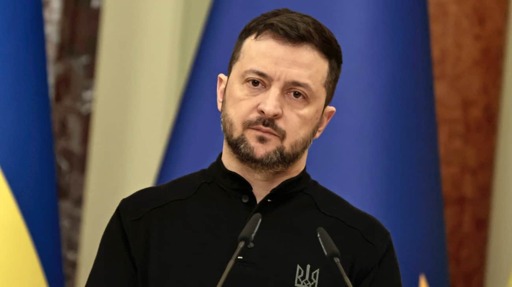Summary
Ukrainian President Volodymyr Zelenskyy asserted that no world leader has the right to negotiate with Russian President Vladimir Putin on behalf of Ukraine.
Speaking to Le Parisien readers, Zelenskyy emphasized that Ukraine alone determines its future and any dialogue with Russia must follow a peace plan based on strength and international support.
He warned against negotiating without clear guarantees of security, highlighting the risks of Putin resuming aggression after a ceasefire.
Zelenskyy called for a strategy ensuring Ukraine’s long-term stability and security, beyond NATO or EU membership timelines.



I heard a while ago that a very well connected person (the sort of person that doesn’t need to work and could spend all their free time maintaining family relations and friendships) would really only be able to maintain family relations and friendships with about two hundred people. The sort of people that say “I have 1000 friends on Facebook” are talking complete bollocks, there’s a huge difference between a relationship/friendship and an acquaintance that you haven’t talked to for fifteen years. The average person truly knows many less people than this, usually in the low dozens.
Using your figures and assuming that these relationships are 50/50 male/female, even these very well connected people would statistically still know less than one injured soldier and have less than a 1/3 chance of personally knowing someone that was killed.
I know this comment assumes and extrapolates quite a bit and the idea is somewhat of a tangent from the original comment, but I think it’s quite interesting.
True, I did a quick calculation and the probability of knowing someone killed or severely injured is
So around ⅓ Russians know at least one person that’s been killed or wounded, and around 10-20% of Russians have someone in their inner circle of friends and family (10-20 closest) that have been killed for wounded.
For this last number to reach 50%, the number of killed+wounded needs to reach about 5% of the fighting age population (≈2.5 million).
Of course, the above assumes that casualties are randomly distributed in the population. In reality it’s likely that fewer people know someone killed or wounded, and that those that know someone likely know more, because of the casualties being disproportionately effecting more rural regions of the country.